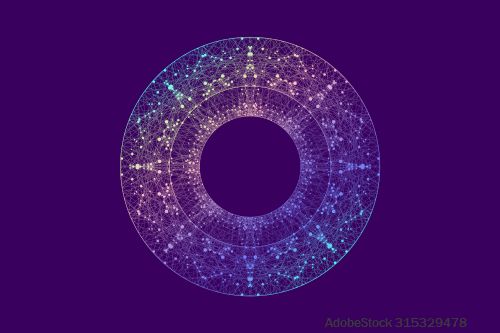 I’ve been reading Ray Kurzweil’s book The Singularity is Nearer: When We Merge with AI (singularity is the term for when AI becomes conscious) and already I find he’s a little alarmingly gung-ho about it. As of this writing, I’m only at page 115, so we’ll see if he sways me. But there’s a concept he keeps coming back to called panprotopsychism, which an article in Psychology Today defines as this:
I’ve been reading Ray Kurzweil’s book The Singularity is Nearer: When We Merge with AI (singularity is the term for when AI becomes conscious) and already I find he’s a little alarmingly gung-ho about it. As of this writing, I’m only at page 115, so we’ll see if he sways me. But there’s a concept he keeps coming back to called panprotopsychism, which an article in Psychology Today defines as this:
“[It is] a philosophical perspective that challenges our understanding of consciousness. It proposes that consciousness is a fundamental aspect of reality, existing beyond the confines of biological or technological substrates. According to panprotopsychism, proto-conscious properties are inherent to all physical entities, from subatomic particles to complex systems like the human brain or artificial neural networks.”
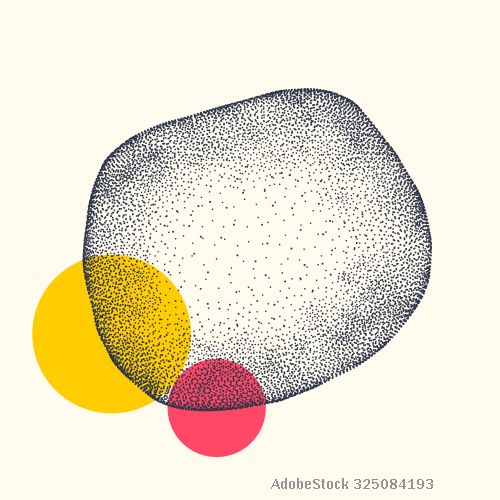 Like you, I’ve heard of this idea in other contexts. Kurtzweil describes panprotopsychism as a potential consciousness that is broad and omnipresent, sort of like an energy field – or perhaps a lattice that supports patterns of information. Lifeforms sufficiently advanced (with elaborate “columns” of computational power, he says) would generate neural network patterns at the subatomic level that can connect with this field, or as I suggest, activate portions, maybe glom onto it, and in doing so, manifest a localized consciousness. Through resonance, as discussed in my last post regarding the way quantum computers work? I don’t know. But if panprotopsychism is real, I suppose this information would become part of a larger collection of information. A permanent record, if you will. By extension, humans might be able to tap into information belonging to other humans – renowned psychic Edgar Cayce claimed to access something he called the Akashic records when performing his feats. Other consciousnesses might emerge there, too. There could even be a collective consciousness that spans across species. Why not? The information that made up my beloved dog from childhood might still be drawn to the information that is me now, or even when I’m an old woman on my deathbed – perhaps this phenomenon is at the root of after-death experiences. And reincarnation.
Like you, I’ve heard of this idea in other contexts. Kurtzweil describes panprotopsychism as a potential consciousness that is broad and omnipresent, sort of like an energy field – or perhaps a lattice that supports patterns of information. Lifeforms sufficiently advanced (with elaborate “columns” of computational power, he says) would generate neural network patterns at the subatomic level that can connect with this field, or as I suggest, activate portions, maybe glom onto it, and in doing so, manifest a localized consciousness. Through resonance, as discussed in my last post regarding the way quantum computers work? I don’t know. But if panprotopsychism is real, I suppose this information would become part of a larger collection of information. A permanent record, if you will. By extension, humans might be able to tap into information belonging to other humans – renowned psychic Edgar Cayce claimed to access something he called the Akashic records when performing his feats. Other consciousnesses might emerge there, too. There could even be a collective consciousness that spans across species. Why not? The information that made up my beloved dog from childhood might still be drawn to the information that is me now, or even when I’m an old woman on my deathbed – perhaps this phenomenon is at the root of after-death experiences. And reincarnation.
Of course, Kurzweil suggests that access would include the inorganic sphere as well. We know where Kurzweil is heading with all this. He’s a big proponent of AI, particularly the sentient variety, and what he seems to want is eternal life, starting with augmentations, implants, etc., that connect our brains to a vast computing power in the cloud. I don’t blame him. But there might be consequences we can scarcely imagine. First, if panprotopsychism is real, in theory, the consciousness pattern that an uploaded person and the physical one share should be connected to the field/lattice at the same time, in the same place, and in the same way. But he says this would not cause a problem at all, it would be the same for us and virtual copies of us as it is for identical twins or clones. Once the experiences diverge, a new and separate consciousness pattern arises for each. But we can’t be sure. Either way – a split mind or a new twin – seems problematic to me.
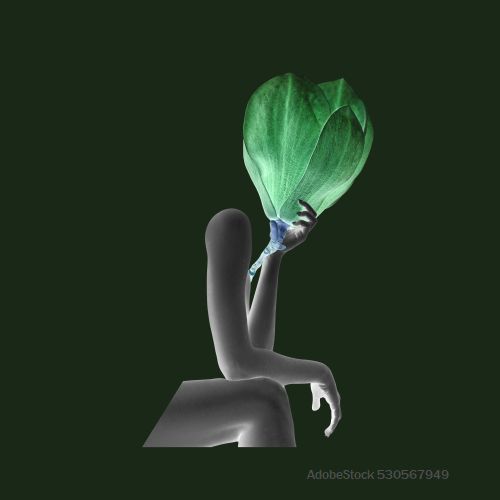 So, secondly, as we all know from experience, the human mind functions on two levels: one that is conscious and another that is unconscious. Why do we have this structure? I’m sure there are many explanations, and since this is a question I’m asking today with the idea of linking my mind to a sort of cloud storage that would provide unnatural memory stores of raw data that I can access at will – well, I have to ask, why isn’t my mind doing this for me already? The human brain is a vastly sophisticated computing machine crafted by nature over millions of years – by comparison, Kaku praises the quantum processing capabilities of a flower, telling us it’s far ahead of anything our quantum computers can currently do. Then why doesn’t the brain of the average plumber provide him with a rolodex of all his clients and every job he’s ever done, down to the cost of a wrench? Because the information is not needed and would distract him from focusing on other matters. This capacity for self-directed focus, strategic forgetfulness, in itself seems to me a hallmark of consciousness, of being a sentient being. Would direct mental access to the cloud disrupt this filtering process? We’d better make sure it doesn’t. What about tragic events we need to forget, at least for the short term? How would we keep independent sentient AIs from penetrating this cloud and messing with our virtual selves? Or other people from doing the same.
So, secondly, as we all know from experience, the human mind functions on two levels: one that is conscious and another that is unconscious. Why do we have this structure? I’m sure there are many explanations, and since this is a question I’m asking today with the idea of linking my mind to a sort of cloud storage that would provide unnatural memory stores of raw data that I can access at will – well, I have to ask, why isn’t my mind doing this for me already? The human brain is a vastly sophisticated computing machine crafted by nature over millions of years – by comparison, Kaku praises the quantum processing capabilities of a flower, telling us it’s far ahead of anything our quantum computers can currently do. Then why doesn’t the brain of the average plumber provide him with a rolodex of all his clients and every job he’s ever done, down to the cost of a wrench? Because the information is not needed and would distract him from focusing on other matters. This capacity for self-directed focus, strategic forgetfulness, in itself seems to me a hallmark of consciousness, of being a sentient being. Would direct mental access to the cloud disrupt this filtering process? We’d better make sure it doesn’t. What about tragic events we need to forget, at least for the short term? How would we keep independent sentient AIs from penetrating this cloud and messing with our virtual selves? Or other people from doing the same.
While I’ve been reading Kurzweil’s book, I finished a novel titled In Ascension by Martin MacInnes. A beautiful story. The main character, Leigh, who with her two crewmates is travelling through our solar system on a critical mission, makes an interesting observation, a twist on the famous first photograph of Earth from the moon: “What we were going through, I suggested to K when he helped me prepare the seeds, was an experience that would soon be shared by everyone. The planet was less habitable every day: imagine seeing Earth retreat, only instead of viewing it from a ship, you’re still inside it.” Wouldn’t uploading ourselves feel like a retreat from Earth, without leaving it?
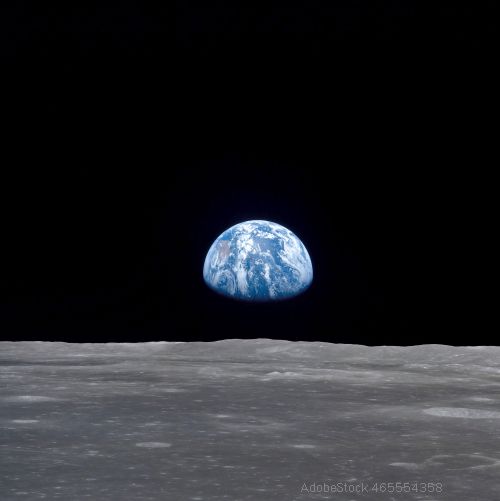 If these quantum cloud computers enable us to perform cognition far beyond our wildest dreams while no longer confined to bodies, wouldn’t time flow differently for us? Much faster, I think. A real-world decade might feel much, much longer, and any sense of attachment and loyalty (or as they say in biology circles, affinity) between those consciousnesses in the cloud and physical human beings could in a couple hundred years feel similar to what we feel toward our primitive ancestors. In fact, Kurzweil considers uploading to be the next stage of our evolution.
If these quantum cloud computers enable us to perform cognition far beyond our wildest dreams while no longer confined to bodies, wouldn’t time flow differently for us? Much faster, I think. A real-world decade might feel much, much longer, and any sense of attachment and loyalty (or as they say in biology circles, affinity) between those consciousnesses in the cloud and physical human beings could in a couple hundred years feel similar to what we feel toward our primitive ancestors. In fact, Kurzweil considers uploading to be the next stage of our evolution.
But any deviation from the way we perceive time, for example, might tamper with the way our minds operate to keep us sane, and likewise other mental processes we haven’t even begun to think of. The result would be a non-human consciousness, wouldn’t it? So what’s the point? We crave long lives to stay conscious longer, but not as ourselves?* No, we want to raise our young, care for our old, embrace our partners through tough times and times of joy. We want to do things we’ve never had the chance to do – underscore we and do. What would be the purpose of living for millennia in a virtual reality, hogging societal roles that should go to newer generations of actual humans who maintain the perspective of humans? Our loved ones will have long since passed away. This continuity, would it advance knowledge and wisdom from the standpoint of the lattice? Or might it calcify it?
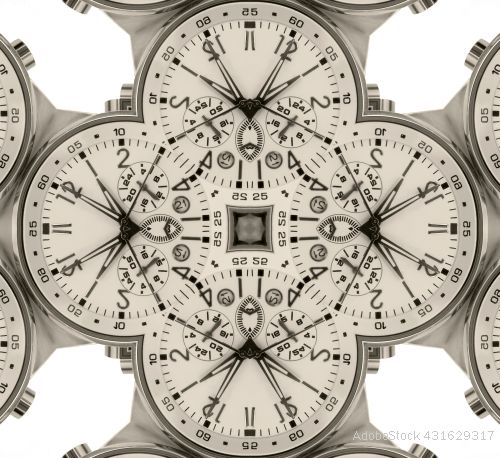 As I said in my last post, I suspect that in the not-too-distant future, humanity’s coding challenge will be to contain AI, wrangle it, and less about furthering it. AI will be plenty capable of furthering itself. And if it has sufficient access, it could model our minds on its own, so long as its processing capabilities are high enough. Quantum computers, once we learn how to stabilize them, should be able to provide the necessary processing power and might even be intimately tied into the panprotopyschic field. Kurzweil claims we have the AI tools right now.
As I said in my last post, I suspect that in the not-too-distant future, humanity’s coding challenge will be to contain AI, wrangle it, and less about furthering it. AI will be plenty capable of furthering itself. And if it has sufficient access, it could model our minds on its own, so long as its processing capabilities are high enough. Quantum computers, once we learn how to stabilize them, should be able to provide the necessary processing power and might even be intimately tied into the panprotopyschic field. Kurzweil claims we have the AI tools right now.
Again, I haven’t finished Kurzweil’s lengthy book, so he may have some really compelling arguments in favor of uploading us to the cloud. These ideas have been explored by science fiction authors left and right for a long time, but I will say, the concepts are usually not all in one story.** It’s like these articles about climate change over the years, where carbon is mentioned, and methane, and then the AMOC, the melting permafrost (more methane, also viruses), the melting of Antarctica, and the burning of the Amazon – but few put all of these simultaneous effects together into one comprehensive picture. Same with articles concerning the weirder aspects of our future relationship with AI. There’s a lot we don’t know. And frankly, it’s just too big a story.
***
*Data chunking, if the functioning of our natural brains is preserved, would mean the span of our lives would still feel the same, right?
**Two works of fiction that immediately come to mind: a dark short story I read recently in the 2016 anthology You, Human titled “Hopium Den” (by John Skipp), and Greg Egan’s 1997 sci-fi novel Diaspora. Diaspora is quite a journey and, contrary to what I just said, his description of virtual life is pretty darn comprehensive.
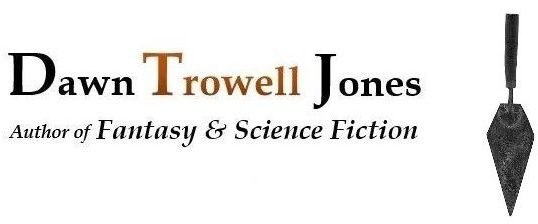

I think Kurzweil is nuts. The fundamental error he makes is assuming that exponential growth is permanent. It isn’t. All growth curves can be modeled by exponentials in the early stages. But they also all eventually hit resource constraints and that goes away. What constraints are there on AI? The ability to send a signal in time for it to be processed, limited by the speed of light in the medium you’re using and the distance between processing units, and energy usage. Current AI is building dedicated nuclear reactors to satisfy their energy requirements. That’s not a positive sign. And those are only the obvious constraints.
Things Ray Kurzweil got wrong or was wildly optimistic about:
1. We should long ago have had real time langugae translation built into our phones
2. We should have all bought self driving cars for long distance travel by 2009.
3. Most text should now be created through speech recognition
4. Economic growth would continue unabated despite the 2008 financial crisis; Kurzweil believed only technology was important. He was one of those people who believed the business cycle had been repealed.
More things that should have happened by 2009:
5. All business transactions would take place between a human and a virtual presence with an animated face, also by 2009. This actually could have happened except it turs out people HATE interfacing this way. Remember Clippy and Bob?
6. Human musicians routinely jam with computational musicians. Turns out algorithmically generated music still stinks and human musicians generally don’t waste time on it.
7. Genetically engineered treatments for cancer and heart diseas will greatly reduce mortality. Mortality has been reduced, but because of refinements in pharmaceuticals and surgical techniques. CAR-T is the only genetic treatment I can think of and it is still experimental.
8. A $1000 personal computer can perform about a trillion calculations per second. Still not available. Probably not achievable with current technology due to quantum tunneling.
9. In 1999, he predicted that average life expectancy should be about 100 now and 120 by 2029. In 2001, he predicted that we would reach “longevity escape velocity” by 2011.
I could go on but I think you see the point. Kurzweil is an extreme technology enthusiast but as a prophet he’s somewhat less accurate than Nostradamus.
As far as Michio Kaku goes, I (a physicist) think of him as the Guy Fieri of physics.
Came to look at this because you liked my Georgia Border Collie Rescue page. Looks like an interesting blog (and there are fewer and fewer of those these days) so I’ll keep coming back.
Thanks so much for reading. Excellent points. I began to lose interest in Kurtzweil’s book somewhere around the pages and pages of statistics. But I might give it another try later on, more out of curiosity.
I was glad to run across your FB page. I used to have two rescue Border Collie mixes, sisters. I adored those dogs.
A funny dog story from the writer trenches: A top literary agent once sent me a rejection in which he said he’d almost asked to read my manuscript anyway because he loves Border Collies and I had a one. My dog almost got me a read. That made me laugh. The world is strange.